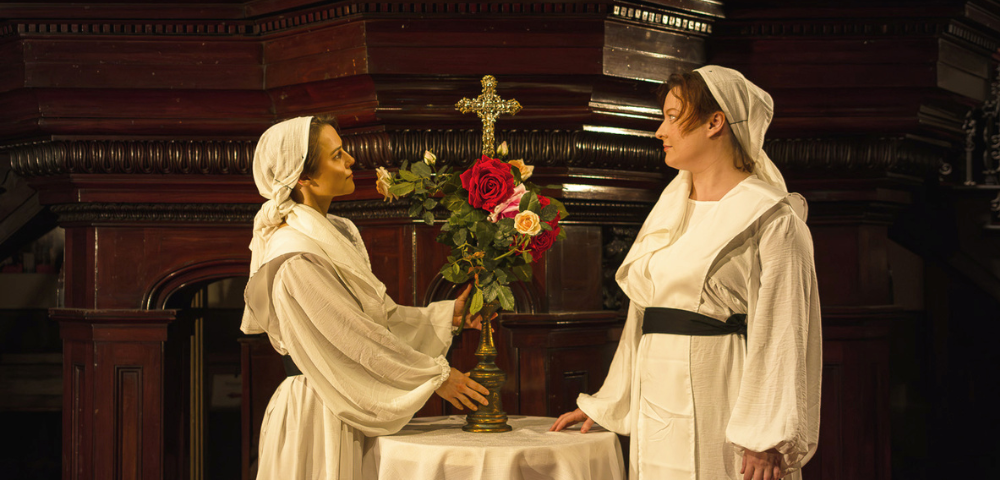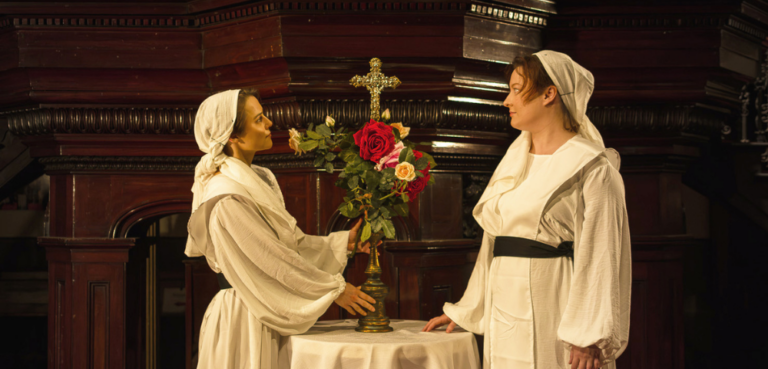
Death of a Salesman – REVIEW
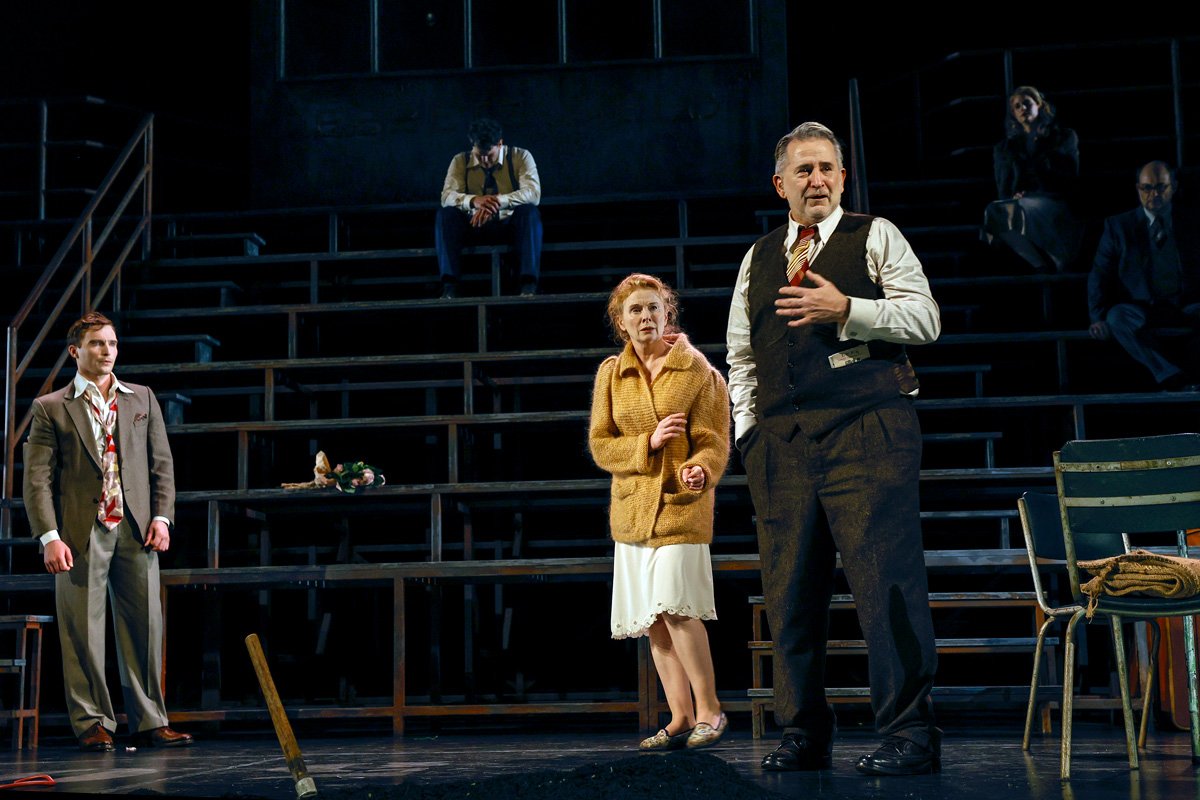
Arthur Miller’s post-war drama, Death of a Salesman is widely regarded as a twentieth century masterpiece, and this latest version directed by Neil Armfield proves that assumption.
A two-act tragedy set in working class Brooklyn immediately after the close of the war, the play centres on travelling salesman Willy Loman, his family, neighbour and boss. Loman is slipping into senility after a lifetime working for the one company while pursuing the American Dream.
Unfortunately for Loman this dream is unreachable and his failure to achieve it infects his family and all others around him.
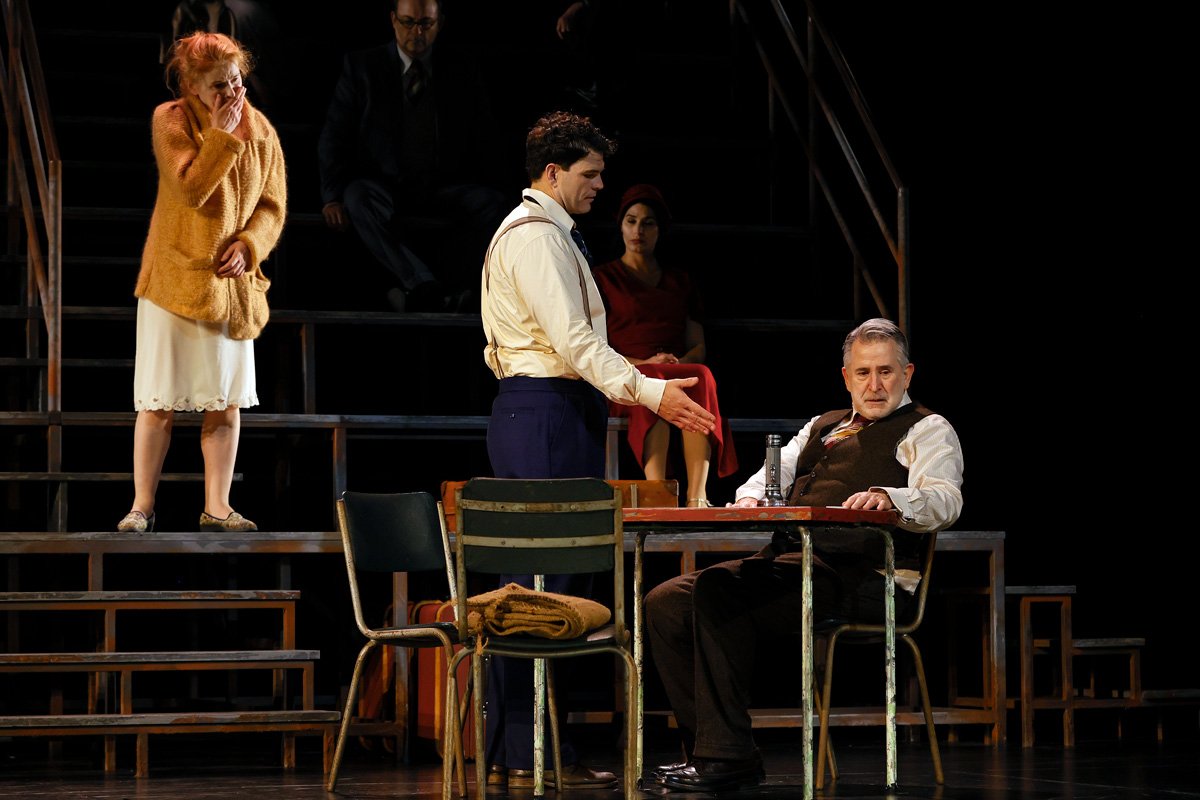
On the home front we have wife, Linda and his two deadbeat sons, Biff and Happy, who embrace Loman’s delusions about himself and his situation, and embark on a set of reminisces that may or may not be real.
Loman is frequently visited by the ghost of Ben, his more successful brother, who continually temps him with projects exploiting the frontiers of Africa or Alaska.
Everybody is complicit in a web of lies, deceit, denial and delusions that may or may not be played out in real time.
But what we can take as real is that Loman has been involved in a series of car accidents while working endless hours and road miles.
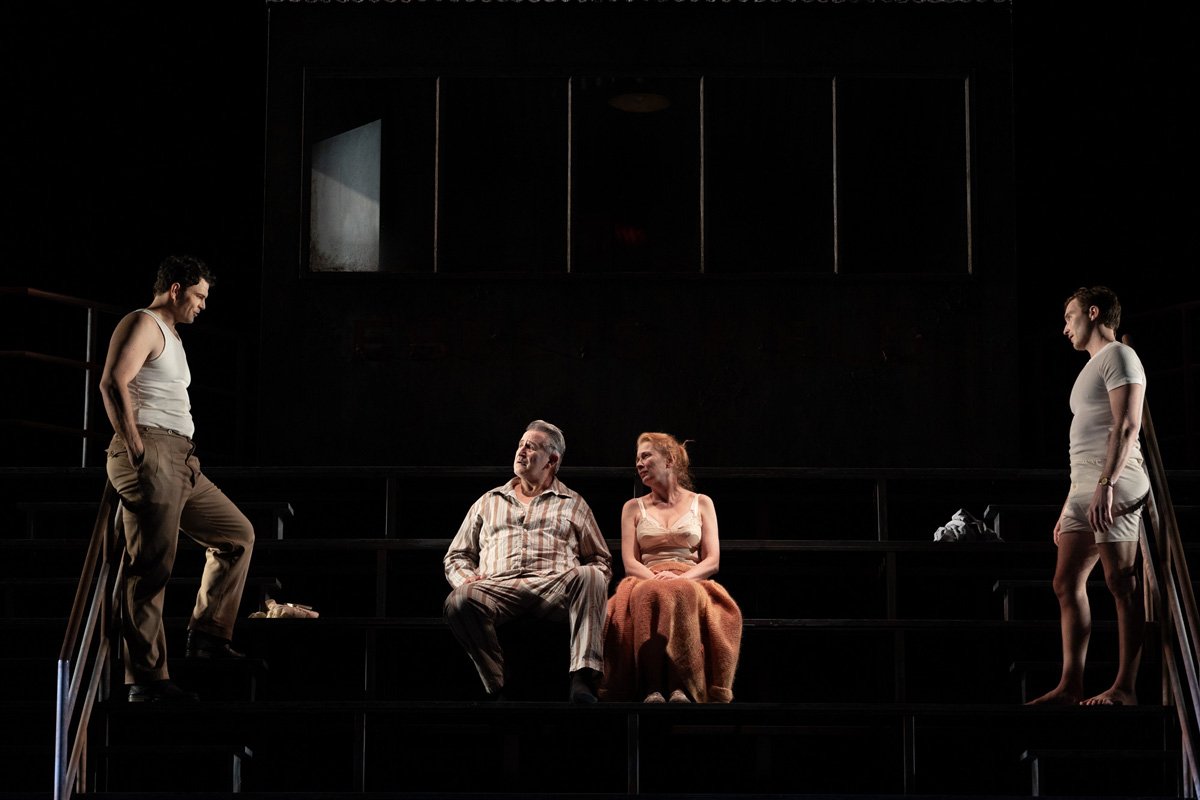
On his return home he remonstrates with his sons about their lack of ambition and achievements, an accusation that they meet by confecting plans to meet their father’s favour.
What we don’t know early in the play is that Biff, a failed football hero, years ago witnessed a transgression by his father with an attractive work colleague and is using this as an excuse for his failures and kleptocracy.
Meanwhile Happy, who on the surface appears to be the better prepared of the brothers is shown to be a wastrel and womaniser.
After being sacked, Loman declines offers of help and further embraces his inner demons and delusions of his popularity.
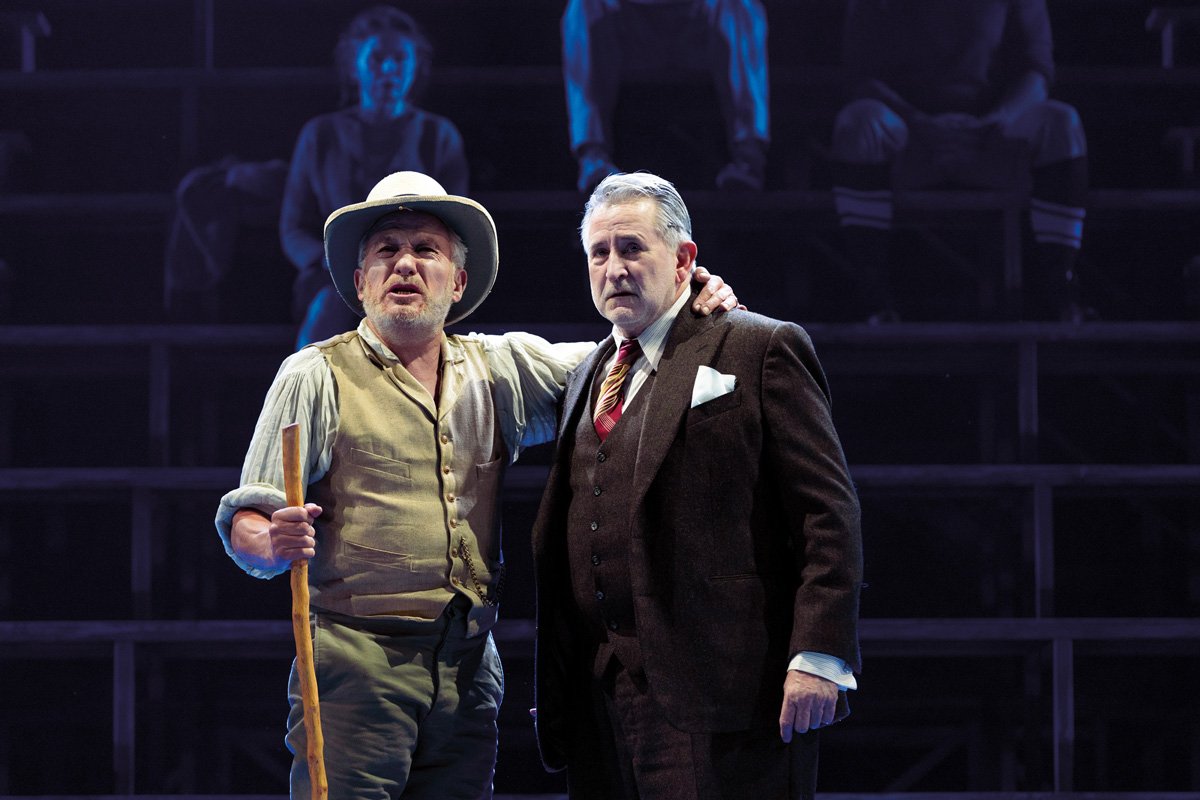
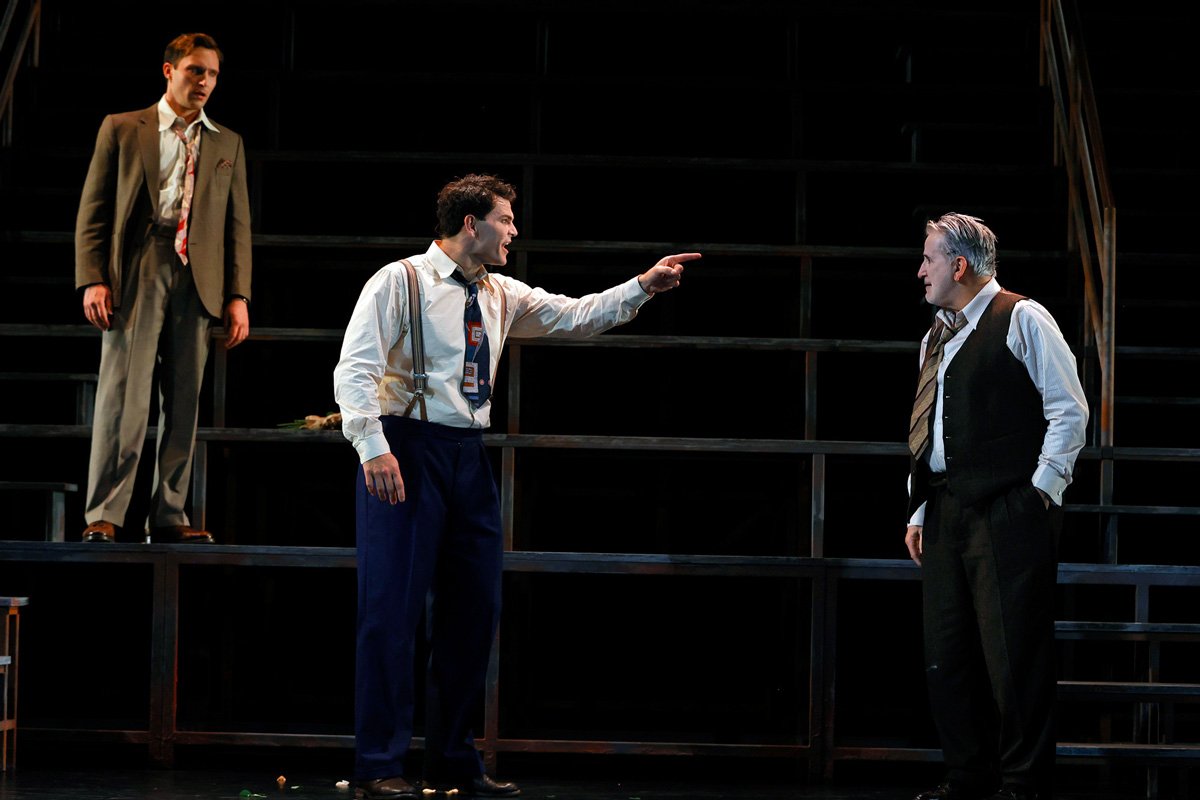
The weight of every working man’s failed dreams are exposed as being part of a larger system that needs failures to advance.
Director Neil Armfield has hit the text with a light touch and with the aid of the set, keeps the dialogue and action flowing seamlessly.
He has also made good choices in casting roles that match headliner, Anthony LaPaglia in delivery and characterisation.
LaPaglia is the drawcard, and rightly so, as he imbues the Loman character with the right amount of threat, frustration, humanity and, lastly, resignation in his final hours.
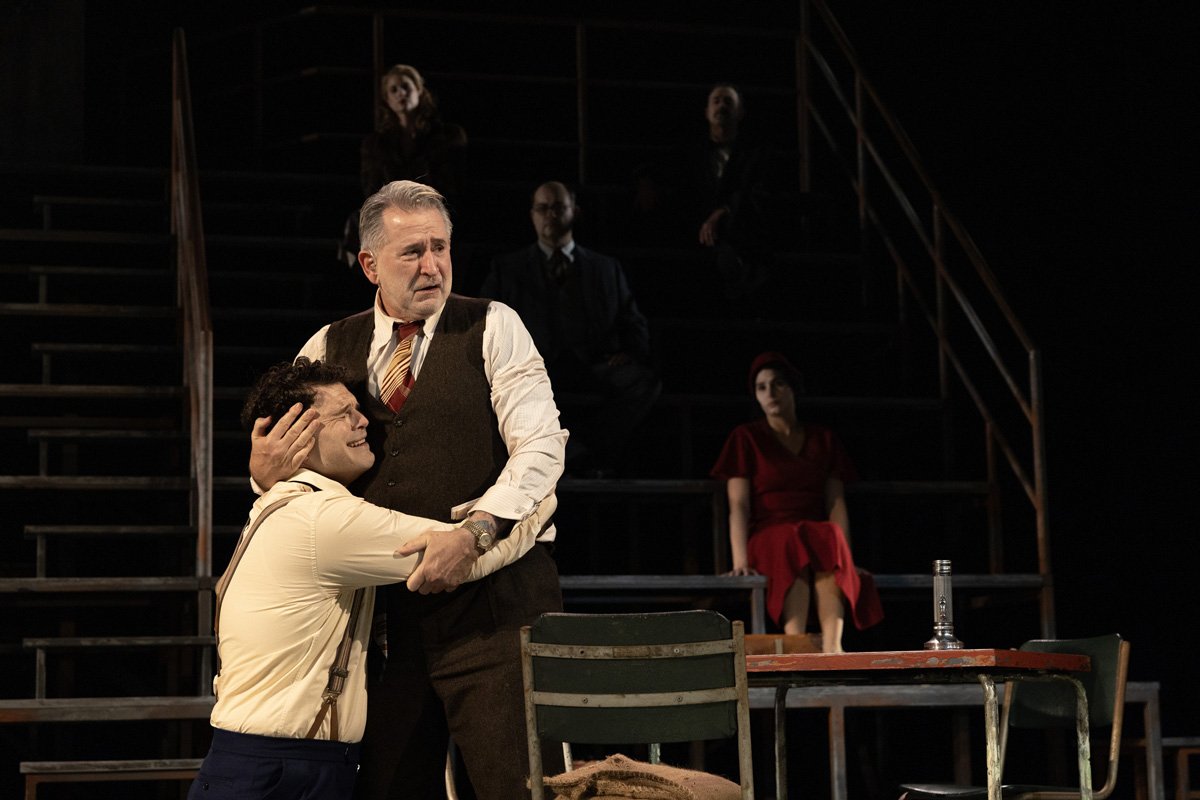
He is a commanding and nuanced presence as he prowls the stage and covers his family with his world weariness while being devoured by the dream by which he has lived his life.
The second act scene when he confronts his son Biff (Josh Helman) for his failures, which mirror his own, is both poignant and powerful.
As Loman’s long suffering wife, Linda, Alison Whyte is an equal match to LaPaglia and shines in her speech in defence of Loman in the first act.
Linda also has the final words of the play, “We’re free, we’re free” that are drenched in irony.
As the failed jock, Biff, Josh Helman is a fantastic physical presence with whom you have sympathy as he reveals his life’s failures.
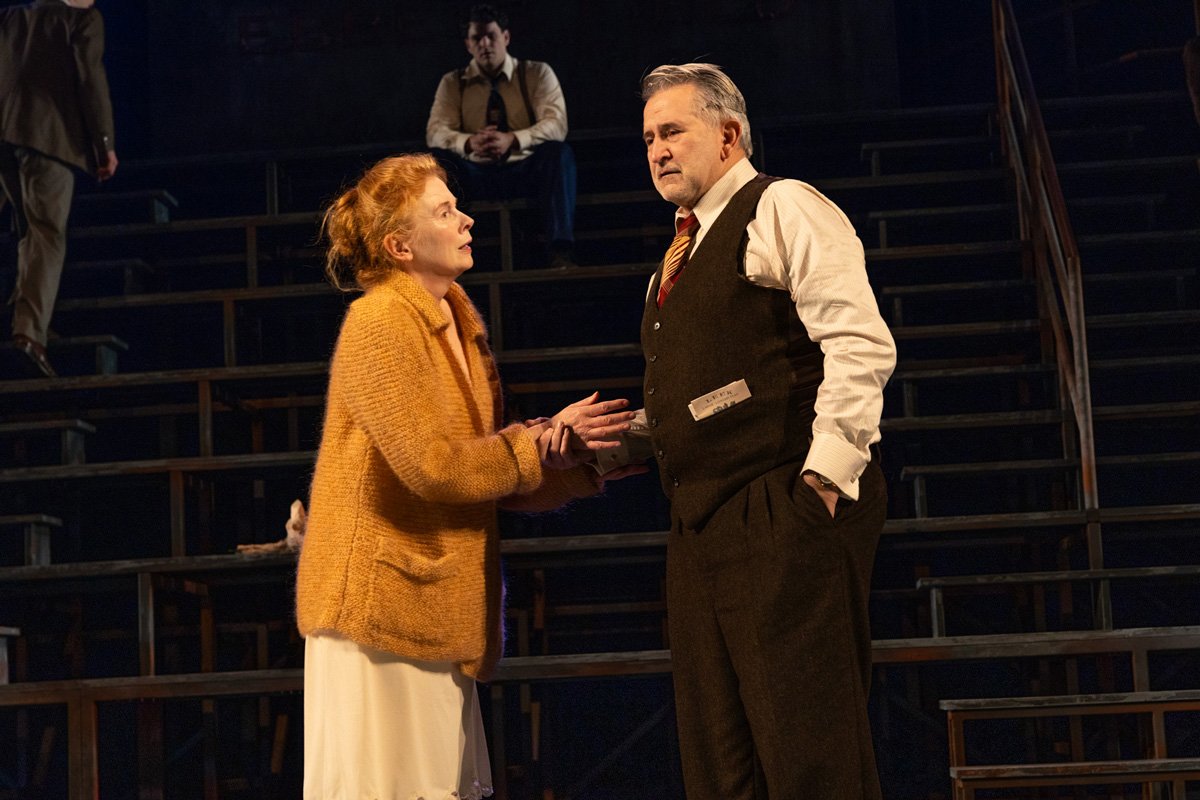
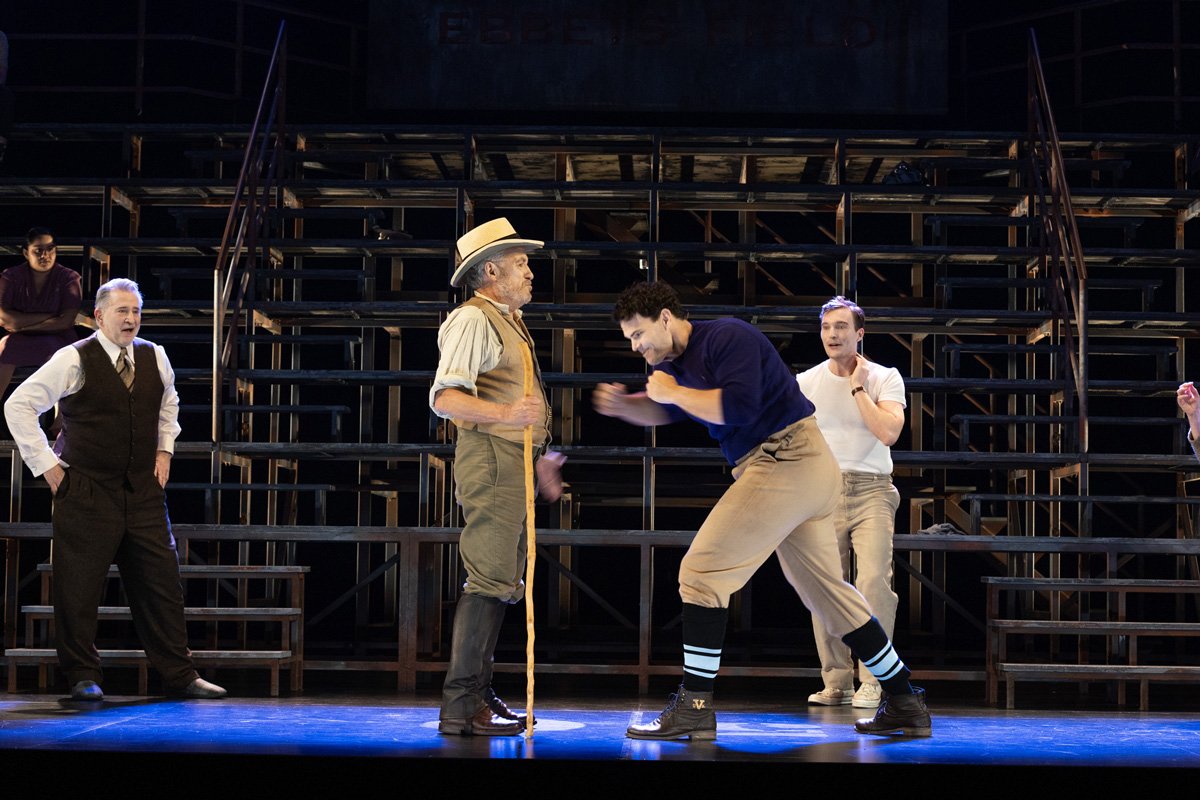
Ben O’Toole also shines as Happy, at first seen as an opposite to brother Biff, but who ends up revealing that he too has failed all expectations.
A minor character but a huge presence is Loman’s brother Ben, played by Anthony Phelan, who plays it with spectral intensity.
As The Woman, Paula Arundell has the looks and personality to show why Loman wandered from his ‘perfect’ relationship.
Tom Stokes’ minor role as the successful Bernard is one that shines, as does Grant Piro who brings light relief as Stanley the waiter.

One of the major scenes outside the Loman household is set in a restaurant into which walk Elizabeth Blackmore (Miss Fortythe) and Aisha Aidara (Jenny, Letta) who provide etching eye candy for Happy.
Marco Chiappi also excels as Charley, the neighbour who sees Loman as what he is, and despite this, throws him a lifeline.
As Loman’s self centred boss Howard, Simon Maiden brings the right measure to the character.
Another major character is Dale Ferguson’s ingenious set of the Ebbets Field bleachers that allow the actors fluidity entering and exiting the stage.
Alan John has kept his music score to a minimum and does not allow it to dominate any scenes.
This Sydney version of Death of a Salesman is a testament to the power of great acting and renews faith in a story well told.




